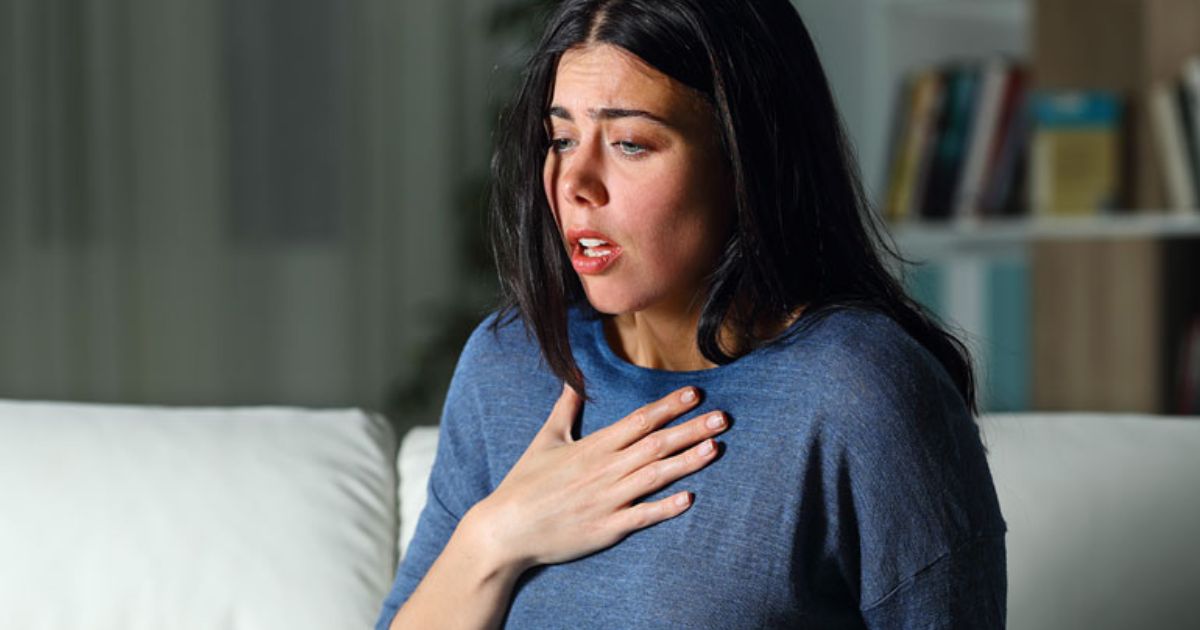The gradual destigmatization of therapy has paved the way for more open conversations about the origins of panic attacks and other mental health challenges.
People are becoming increasingly candid about their struggles, yet alongside this progress, a surge in self-diagnoses has emerged. While self-diagnosis can sometimes offer valuable insights, it also carries the risk of misinformation.
One area where self-diagnosis has stirred confusion is around anxiety and panic attacks. This is precisely where the expertise of Dr. Julie Smith, a clinical psychologist, comes into play.
Dr. Smith aims to clarify the distinctions between anxiety, anxiety attacks, and panic attacks, dispelling myths along the way. Notably, she addresses a common misconception – the term “anxiety attacks” – which, in reality, lacks clinical validity.
“Anxiety attack” is a phrase that has gained traction online and on social media, often encompassing varied meanings.
Therapist Explains The Origins Of Panic Attacks
Dr. Smith elaborates on the root of this discrepancy, highlighting that the term doesn’t hold the weight of a clinical disorder or diagnosis. Professionals within the mental health field do not recognize it as a precise description for any specific condition or experience.
Dr. Smith carefully dismantles the misnomer of “anxiety attack” by contrasting it with the recognized terms of anxiety and panic attacks.
She explains that anxiety, as a broader term, refers to a general state of unease or apprehension.
On the other hand, panic attacks, though intense and often alarming, are well-defined occurrences within the realm of mental health diagnoses. Panic attacks entail sudden surges of overwhelming fear or discomfort, accompanied by physical symptoms such as rapid heartbeat, shortness of breath, and dizziness.
By clarifying these distinctions, Dr. Smith aims to bridge the gap between the vernacular usage of “anxiety attack” and the accurate definitions recognized by mental health professionals.
Her effort underscores the significance of using precise language when discussing mental health to ensure a shared understanding among individuals and professionals alike.
The rise of self-diagnosis and the subsequent spread of misconceptions can largely be attributed to the influence of social media and the internet.
While these platforms provide spaces for dialogue and information sharing, the absence of gatekeeping can inadvertently lead to the proliferation of unverified information.
This phenomenon makes Dr. Smith’s expertise all the more valuable, as she works to counteract the potentially harmful impacts of misinformation.
Dr. Smith’s intervention underscores the necessity of informed conversations around mental health.
As awareness grows, so does the responsibility to ensure that discussions are rooted in accuracy and sensitivity. Clear communication helps dispel myths, reduce stigma, and foster a more comprehensive understanding of mental health experiences.
The intersection of increasing openness about mental health challenges and the rise of self-diagnosis presents both opportunities and challenges.
Dr. Julie Smith’s efforts to clarify the terminology surrounding anxiety, anxiety attacks, and panic attacks showcase the importance of having accurate and informed discussions.
As society navigates this complex landscape, individuals, professionals, and media outlets must work collaboratively to ensure that information shared about mental health is precise, respectful, and contributes to the overall well-being of those who seek understanding and support.


